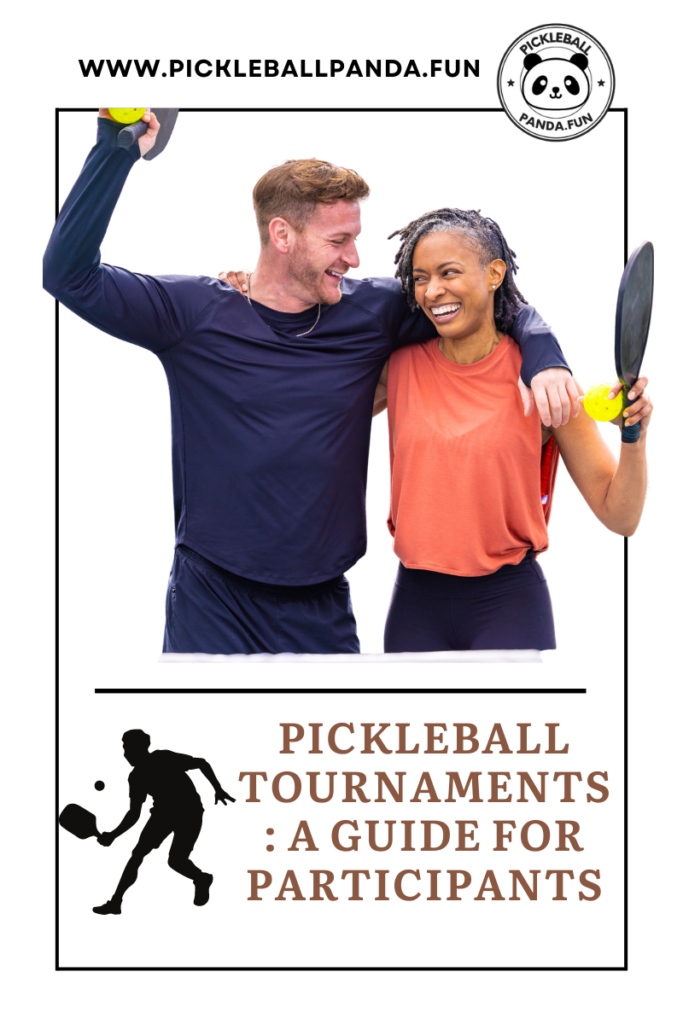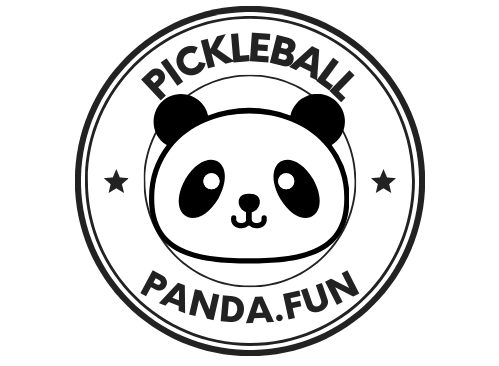Understanding what you need to do for a tournament

Pickleball Tournaments: A Guide for Participants
Pickleball has gained immense popularity over the years, attracting players of all ages and skill levels. As the sport continues to grow, so does the excitement around pickleball tournaments. Participating in a tournament can be a thrilling experience for players looking to showcase their skills and compete with fellow enthusiasts. In this article, we will provide you with a comprehensive guide to pickleball tournaments, covering everything from preparation to strategies and tips for success.
Table of Contents
- Introduction
- Understanding Pickleball Tournaments
- Benefits of Participating in Tournaments
- Preparing for a Pickleball Tournament
- Selecting the Right Tournament
- Training and Skill Development
- Mental Preparation
- Equipment and Gear
- Nutrition and Hydration
- Rules and Regulations
- Scoring System
- Court Etiquette
- Referee Decisions
- Tournament Strategies
- Developing a Game Plan
- Assessing Opponents
- Communication with Partners
- Adapting to Different Court Surfaces
- Warm-up and Stretching Exercises
- During the Tournament
- Managing Nerves and Pressure
- Staying Focused and Positive
- Maintaining Energy Levels
- Hydration and Rest
- Post-Tournament Recovery
- Rest and Relaxation
- Physical and Mental Recovery
- Reflecting on Performance
- Setting Goals for Future Tournaments
- Conclusion
- FAQs (Frequently Asked Questions)
1. Introduction
Pickleball tournaments provide players with an opportunity to showcase their skills, compete against other players, and experience the thrill of the game at a higher level. Whether you are a seasoned player or new to the sport, participating in a tournament can be a rewarding and exciting experience. This guide will equip you with the knowledge and strategies to make the most of your tournament experience.
2. Understanding Pickleball Tournaments
Pickleball tournaments are organized events where players compete against each other in structured matches. They can vary in size and format, ranging from local tournaments to national or international competitions. Tournaments are typically categorized by skill level, ensuring fair and competitive gameplay. Matches may be played in singles, doubles, or mixed doubles formats, depending on the tournament’s rules.
3. Benefits of Participating in Tournaments
Participating in pickleball tournaments offers several benefits for players. Firstly, it provides an opportunity to improve your skills by playing against players of similar or higher abilities. Tournaments also offer a chance to meet fellow pickleball enthusiasts and build a sense of community. Additionally, tournaments allow players to gain exposure, receive feedback from experienced players and coaches, and potentially earn recognition for their performance.
4. Preparing for a Pickleball Tournament
Selecting the Right Tournament
Before participating in a tournament, it’s important to choose one that aligns with your skill level and goals. Consider factors such as tournament location, entry fees, level of competition, and tournament format. Researching different tournaments and seeking recommendations from fellow players can help you make an informed decision.
Training and Skill Development
To perform well in a pickleball tournament, regular training and skill development are crucial. Focus on improving your technique, footwork, and strategy. Practicing with players of varying skill levels can also enhance your adaptability on the court.
Mental Preparation
Preparing mentally is as important as physical training. Develop strategies to manage stress and nerves during matches. Visualize successful performances and practice positive self-talk. Building mental resilience will help you stay focused and perform at your best. Visit the facility prior to the tournament to get familiar with the area, court surface, and parking situation. The more comfortable you are that day the more you can focus on your game and not your environment.
Equipment and Gear
Ensure you have the appropriate equipment and gear for the tournament. Invest in a high-quality pickleball paddle that suits your playing style and preferences. Some paddles will have an approval stamp on the face of the paddle if approved by USAPA if it is a larger tournament. Most times they will just check surface of your paddle to ensure no extra grip was applied after the factory production. Comfortable court shoes, appropriate clothing, and accessories like sweatbands and wristbands are also essential.
Nutrition and Hydration
Maintaining a healthy diet and staying hydrated are vital for optimal performance. Eat nutritious meals before and after matches, and stay hydrated throughout the tournament. Avoid heavy meals just before playing to prevent discomfort on the court.
5. Rules and Regulations
Understanding the rules and regulations of pickleball tournaments is essential for smooth and fair competition. Most annoucements will posted prior to the tournament on flyers or websites on how the elimination process will be done. If it is your first tournament, introduce yourself to the person running the tournment and the person running your division. There will be a good resource if you have any questions.
Scoring System
Pickleball uses a rally scoring system, where points can be scored by both serving and receiving teams. Games are typically played to 11 or 15 points, and players must win by a margin of two points. Familiarize yourself with the specific scoring rules of the tournament you are participating in.
Court Etiquette
Respecting court etiquette is crucial during tournaments. Be mindful of others’ playing space, avoid unnecessary distractions, and follow the referee’s instructions. Maintain good sportsmanship and congratulate opponents on their successful shots.
Referee Decisions
Tournaments may have referees overseeing matches. Understand the process of referee decisions and accept their rulings with grace. If you have concerns about a decision, communicate respectfully with the referee or tournament officials. Most tournaments will have court monitors but no referees to make decisions. If there is a call where both players can not agree on a call usually they replay the point. If it is a call where both players are unsure how to proceed, you may have your court monitor.
6. Tournament Strategies
To increase your chances of success in pickleball tournaments, it’s important to develop effective strategies.
Developing a Game Plan
Create a game plan based on your strengths and weaknesses. Analyze your opponents’ playing styles and adjust your strategy accordingly. Focus on consistency, placement, and teamwork with your doubles partner.
Assessing Opponents
Observe your opponent’s playing style and weaknesses during warm-ups and early matches. Adapt your game plan to exploit their vulnerabilities while maximizing your own strengths. Be flexible and willing to adjust your strategy as the match progresses.
Communication with Partners
In doubles or mixed doubles tournaments, effective communication with your partner is key. Coordinate your movements, anticipate each other’s shots, and provide encouragement and support. Clear communication can lead to better teamwork and improved performance.
Adapting to Different Court Surfaces
Pickleball tournaments may be held on various court surfaces, including indoor and outdoor venues. Practice on different surfaces to familiarize yourself with the variations in ball bounce and court speed. Adapt your game accordingly to optimize your performance.
7. Warm-up and Stretching Exercises
Proper warm-up and stretching exercises are crucial to prevent injuries and prepare your body for intense gameplay. Incorporate dynamic warm-up exercises that target your muscles and joints. Perform stretching exercises to improve flexibility and range of motion.
8. During the Tournament
Once the tournament begins, it’s important to manage your nerves and perform at your best.
Managing Nerves and Pressure
Tournament environments can be nerve-wracking. Develop strategies to manage pre-match nerves, such as deep breathing and positive visualization. Focus on the present moment and trust in your preparation.
Staying Focused and Positive
Maintaining focus during matches is essential. Avoid getting distracted by external factors and stay mentally engaged in the game. Maintain a positive attitude, even during challenging moments, as it can help you bounce back from setbacks.
Maintaining Energy Levels
Pickleball tournaments can be physically demanding, requiring stamina and energy. Stay properly fueled and hydrated throughout the tournament. Consume energy-rich snacks between matches to maintain your energy levels.
Hydration and Rest
Stay hydrated by drinking water regularly, especially during breaks between matches. Adequate rest is also important to allow your body to recover. Get enough sleep and take short breaks between matches to rejuvenate.
9. Post-Tournament Recovery
After the tournament concludes, take the necessary steps to recover and reflect on your performance.
Rest and Relaxation
Give your body ample time to rest and recover from the physical and mental exertion of the tournament. Engage in relaxing activities such as stretching, light exercises, or even gentle massages to relieve any muscle soreness or tension.
Physical and Mental Recovery
Engaging in post-tournament recovery activities is essential to prevent injuries and enhance your overall well-being. Gradually ease back into your regular training routine to avoid overexertion. Take time to mentally reflect on your performance, identifying areas for improvement and celebrating your successes.
Reflecting on Performance
Reflect on your tournament experience and assess your strengths and weaknesses. Analyze the matches you played, noting the strategies that worked well and areas where you can make improvements. Use this feedback to set goals for future tournaments and training sessions.
Setting Goals for Future Tournaments
Based on your tournament experience and self-reflection, set realistic and measurable goals for your future tournaments. Whether it’s improving specific skills, reaching a certain ranking, or participating in higher-level competitions, setting goals can provide motivation and direction for your pickleball journey.
10. Conclusion
Participating in pickleball tournaments is an exciting endeavor for players of all skill levels. By preparing effectively, understanding the rules, and employing strategic approaches, you can enhance your chances of success. Remember to stay focused, maintain a positive mindset, and enjoy the experience of competing against fellow pickleball enthusiasts. Keep striving to improve your skills and make the most of every tournament opportunity.
11. FAQs (Frequently Asked Questions)
Q1. How can I find pickleball tournaments near me?
You can find pickleball tournaments near you by checking local sports clubs, community centers, or pickleball associations. Additionally, various online platforms and social media groups provide information on upcoming tournaments in different locations.
Q2. Can I participate in a pickleball tournament as a beginner?
Yes, there are tournaments available for players of all skill levels, including beginners. Look for tournaments specifically designed for beginners or those with lower skill divisions to ensure a fair and enjoyable experience.
Q3. What should I bring to a pickleball tournament?
Ensure you have your pickleball paddle, appropriate court shoes, comfortable clothing, water bottle, towel, and any necessary accessories such as sweatbands or wristbands. It’s also a good idea to bring extra pickleballs in case of breakage or loss.
Q4. How can I deal with tournament nerves and performance anxiety?
Managing nerves and performance anxiety is a common challenge. Develop relaxation techniques such as deep breathing or visualization exercises to calm your mind. Engaging in consistent practice and mental preparation can also build confidence and reduce anxiety over time.
Q5. Is it necessary to have a doubles partner for a pickleball tournament?
Having a doubles partner is not always necessary, as some tournaments offer options for singles play. However, participating in doubles tournaments can be a great way to collaborate and strategize with a partner, adding a new dimension to the game.
Get more get tips at www.PickleballPanda.Fun
In conclusion, participating in pickleball tournaments provides an excellent opportunity to showcase your skills, engage in competitive gameplay, and immerse yourself in the vibrant pickleball community. By following the guidelines and strategies outlined in this guide, you can enhance your tournament experience and strive for success. So, grab your paddle, prepare diligently, and embrace the thrill of pickleball tournaments!
